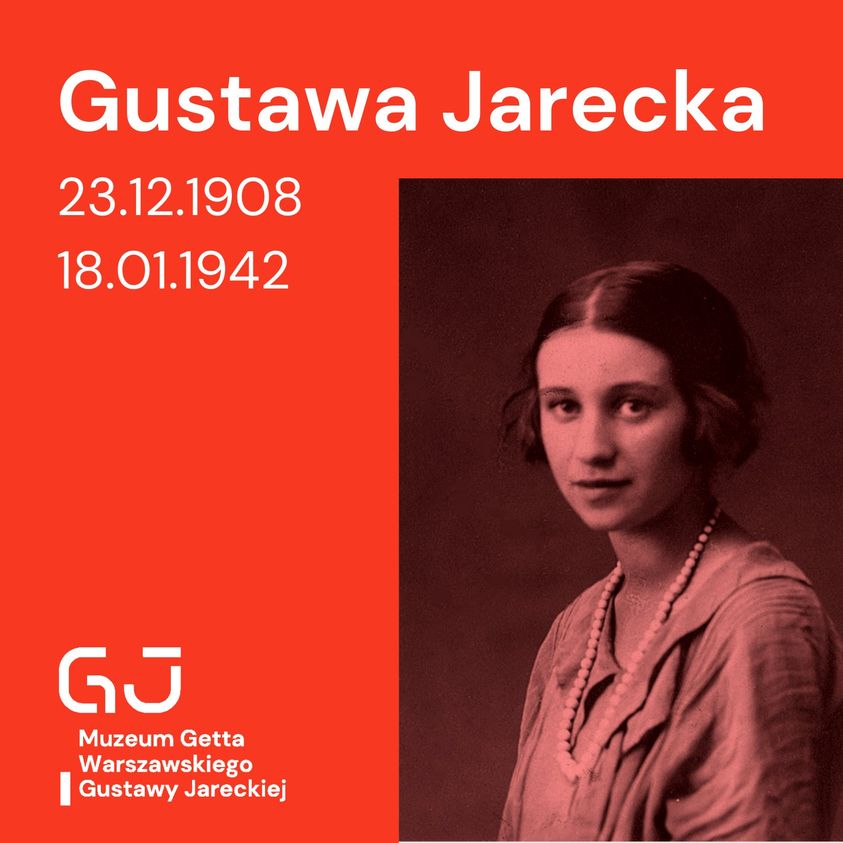Gustawa Jarecka (23.12.1908–18.01.1943)
prose & fiction writer, Polish language teacher

She was born in Kalisz, the daughter of Moszek, a merchant from Zagórów, and Natalia from Poznań. She had two siblings – Irena and Albert. She graduated from high school in Łódź and then Polish Studies at the University of Warsaw in 1931. Her literary debut, “Inni ludzie” (Polish, “Other People”), was published in 1931. She was the author of three more novels, “Stare grzechy” (Polish, “Old Sins”, 1934), “Przed jutrem” (Polish, “Before Tomorrow”, 1936), and “Ludzie i Sztandary” (Polish, “People and Banners”, volume 1 “Ojcowie/Fathers,” 1938; volume 2 “Zwycięskie Pokolenie/The Victory Generation,” 1939). They all had a social theme; background was the labour movement in Łódź and among the issues addressed one can mention unemployment, poverty and social exclusion. She was one of the left-wing writers of the pre-war period. Jarecka’s short storiesand novel fragments were published in “Głos Poranny”, “Dziennik Ludowy”, “Górnik”, “Myśli Socjalistyczna” and “Nowa Kwadryga”. She worked at the school as a Polish teacher in Wąbrzeźno. She described the town at the turn of 1935 and 1936 in a book for children, “Szósty Oddział jedzie w świat” (Polish, “The Sixth Unit Goes into World”). She was also a translator – reportedly translating overnight Antoine de Saint-Exupéry’s short story “Night Flight”, in which one of the characters is a mail plane pilot.
From 1940 she lived in the Warsaw ghetto, where she worked as a telephone operator and typist in the Jewish community. Jarecka spoke fluent Polish and German, had Polish friends on the other side of the Wall, and “good looks.” She was offered to escape to the so-called “Aryan side,” but she refused because of two sons whom she had raised alone, Mark and Karol. She was a member of the underground organisation Oneg Shabbat, for which she copied documents that passed through the Judenrat secretariat, including the transcript of the meeting of July 22, 1942, in which Hermann Hoefle dictated to the Judenrat German orders for the so-called Great Action, statistical data and the contents of the deportation announcement. She is credited with the authorship of a report describing the Great Liquidation Action in the ghetto under the title “The Last Stage of Resettlement is Death,” which was used in a conspiratorial report dated November 15, 1942, for the Polish government in London.
She died on the first day of the second liquidation action of the Warsaw Ghetto, together with two children on the train to Treblinka, probably due to lack of air.

